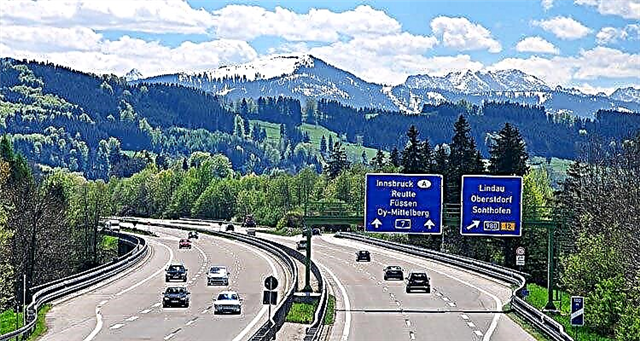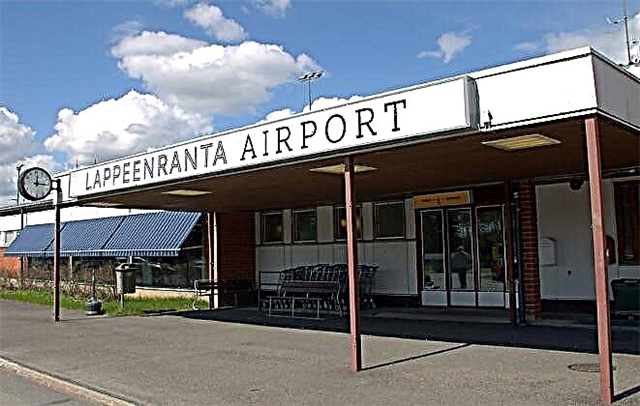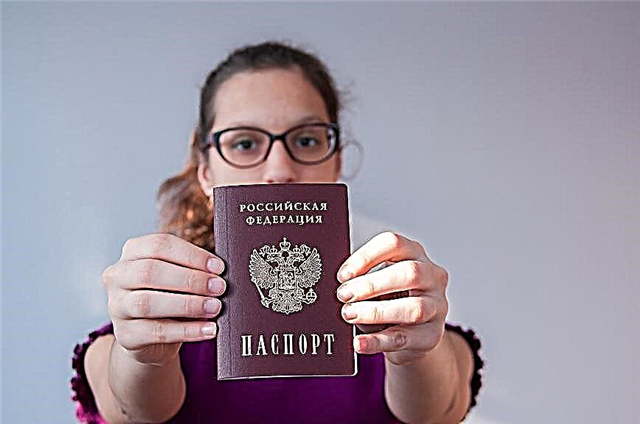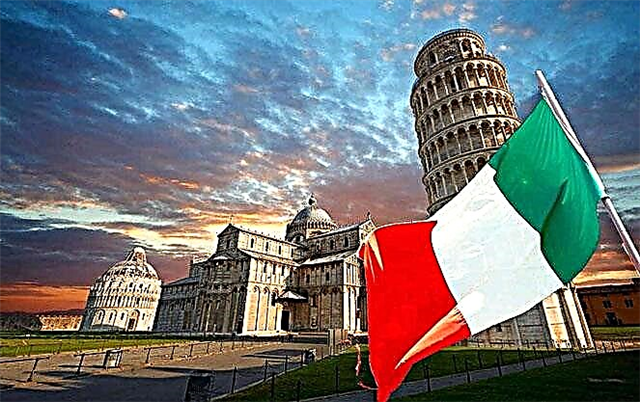Traveling to Italy is always romantic and informative. Ancient ruins and medieval architecture, beautiful natural landscapes, the southern coast of the Mediterranean Sea ... In order not to disrupt your plans, when the list of attractions has already been drawn up, a visa to Italy should be received on time. What types of visas are generally provided for by Italian law? Where and how to apply for it, and what to do in order to be guaranteed an entry permit?

General information about the Italian visa
In accordance with Art. 4 of the Consolidated Text of the Law on Immigration and the Status of Aliens No. 286/1998 of 25.07.1998 (Testo unico delle disposizioni concernenti la disciplina dell'immigrazione e norme sulla condizione dello straniero), the entry rules allow only those foreign citizens who have previously issued a visa to visit Italy ... Naturally, unless otherwise provided by international treaties or Italian law.
Holders of a residence permit or citizens of those countries with which a visa-free regime is established (for example, Ukraine or Georgia) enter without visas. Thus, for Russians in 2021, a visa to enter Italy is mandatory.
Italy is a member of the European Union and the Schengen Agreement, therefore, the conditions and regulations established by the EU Visa Code (EU Regulation No. 810/2009) also apply to its territory. He defined the general rules for issuing and existing categories of visas, the procedure for submitting applications, requirements for biometric data, a list of supporting documents and other conditions that provide for the visa regime of entry. Simply put, the Visa Code is a procedural law, and Law No. 286/1998 is a source of substantive norms.
The legislation provides for different categories of visas: it is the type of permit that determines the scope of rights that a foreigner has. In general, any of them gives the right to enter Italy, free movement around the country and stay in it, as well as in other Schengen countries.
But the duration of such a stay depends on the basis on which it was received. For example, a tourist visa to Venice allows you to stay in the country for no longer than 3 months. A seasonal work permit will allow you to stay in Italy for no longer than 9 months, and for studies - no longer than a year with the possibility of extension.
If the reason for the request is permanent employment, the duration of the permitted stay can be up to 2 years. For a similar period, you can enter the country if you have Italian relatives.
Upon expiry of the term, you can extend the visa. A prerequisite for this will be the preservation of the circumstances that caused its receipt. So, if this is a job - continuation of work, if study - enrollment in the next year of the university. Extension is also permissible for extraordinary circumstances, for example, if the current state of health does not allow the foreigner to leave Italy.

But visa validity is not the only difference; they also differ in the purpose of their stay, including:
- employment (seasonal, permanent);
- business and cooperation with Italian companies;
- getting education, including higher education;
- receiving paid medical care;
- carrying out any other professional activity and so on.
Any foreigner can apply for a permit if he has a valid need to enter. Please note that an Italian visa is also suitable for traveling by car: with it you can easily cross the Polish, Lithuanian, Finnish or any other border of the Schengen zone.
The main condition is to confirm at the border your route, where the destination, as well as the place where the foreigner plans to stay the longest, should be Italy.
Categories of visas valid in Italy
Immediately, we draw your attention to the fact that the categories of visas and the grounds for obtaining them are concepts of a different nature. The categories are determined by the uniform rules of the European community, but the grounds for their issuance are determined by national legislation.
So, in accordance with the EU Visa Code, it is customary to distinguish between the following types of visas:
- Unified Schengen Visa (USV). An entry permit issued by one of the Schengen countries, but valid at the borders of all states. It is short-term, the period of stay on it cannot be more than three months within six months - the “90/180” rule applies. There are 2 categories of uniform visas:
- Category A visa, also referred to as "transit", an airport visa with the shortest admissible period of stay.
- Visa category C, gives the right to stay in Italy and other Schengen countries for a short period, depending on the purpose of the stay, as well as a long period (C1-C5). For the purpose of stay, it can be:
- single entry, allowing only once to cross the border of the Schengen state;
- double entry, allowing you to enter the Schengen area twice during the validity period;
- multiple entry visa allowing multiple entries to the EU during the validity period.
- Limited Area Visa (LTV). A type of entry permit that allows you to cross borders and stay only on the territory of one country that issued it. Such a visa issued by Italy to a foreigner will not allow him to cross the borders of other EU countries.
- National Visa (VN). A type of long-term visa that allows you to stay in a Schengen country for longer than 90 days (category D). Holders of such a document can freely stay on the territory of any Schengen country, including if the visa is issued by Italy. It can be provided on various grounds provided for by the "Law on Immigration and Aliens", depending on the purpose of stay
The reasons for obtaining each of them, as we have already said, may differ. Let's consider the most common grounds on which you can open a visa for citizens of Kazakhstan, Russia, Belarus and other CIS countries.
Transit visa (category A)
A category A transit visa is a permit that allows a foreigner to stay in the international transit zone of an airport in one of the Schengen countries without permission to enter the territory of the country itself. For this reason, such a permit is also called an airport permit.
You need such a visa when transferring from one flight to another in an EU country when traveling between countries that are not members of the Schengen Agreement: for example, a flight from Moscow to Mexico City with a transfer in Milan.
Unlike most others, such a visa is issued for the shortest possible period and allows you to stay within the international zone of the airport for no more than five days. It is always a single-entry Schengen visa that allows you to cross the Schengen borders once.
In addition to the airport, there are other types of transit visas, in particular, for traveling to San Marino, for crossing the border by sailors or working on an Italian ship, and so on. Despite the short period of stay, the procedure for obtaining is fundamentally no different from that provided for other visas.
Tourist visa
An urgent visa for the purpose of tourist travel is a Category C visa. The recipient is expected to visit Italy for the purpose of:
- tourism and recreation;
- sanitary treatment;
- participation in excursion programs;
- visiting relatives and friends;
- visits to cultural and sports events;
- attending conferences, exhibitions and museums, theaters, operas and concerts;
- self-guided sightseeing and so on.
Accordingly, the tourist purposes of visiting the country must be documented, for example, a purchased tour.When purchasing tours to Italy, travelers often apply for visas through a travel agency. Usually employees of travel agencies give a guarantee of a positive result. However, such intermediary services are not free: in addition to official payments, you need to prepare an additional 40-100 euros.
The most popular tourist destinations in Italy are Sicily, Milan, Florence, Venice, Naples and of course Rome and the Vatican. It is believed that a tourist visa is the cheapest Schengen visa.
Business visa
A business visa can be issued to foreigners who intend to visit Italy for:
- business meetings and negotiations with Italian business partners;
- conclusion and signing of contracts for supplies and cooperation;
- conducting or passing trainings and internships at Italian enterprises;
- familiarization with the products;
- escorting and transportation of goods during their transportation by land transport.
A business visa is a category C permit that allows you to stay in Italy for no more than 90 days within six months (clause 4 of article 4 of law no. 286/1998). One of the main conditions for obtaining it is documentary evidence of commercial relations with the receiving party.
It will not be possible to issue a visa for the future search for potential partners / suppliers - at the time of submitting the documents, they must already be found, since an entry permit is issued only at the invitation of an Italian organization.
At the same time, the program of stay in Italy, the expected business contacts and addresses, the schedule of meetings should be determined. According to Art. 1 of Law No. 69 of May 28, 2007, within 8 days after entry on such a visa, you must register with the Questur.
Medical Visa
Persons wishing to undergo short-term or long-term treatment, as well as to undergo surgery in a public or private Italian clinic, can obtain a medical visa, subject to the appropriate medical indications (Art. 36 of Law No. 286/1998).
Depending on the duration of the proposed treatment, this can be a C visa (up to 90 days) or a D visa (more than 90 days within six months). A diagnosis requiring treatment in an Italian clinic must be documented by an epicrisis, an extract from a medical card or other documents.
In addition to him, in order to obtain an entry permit, you must:
- receive an invitation from an Italian clinic indicating the expected time of treatment;
- before paperwork, pay at least 30% of the cost of treatment or register for participation in any humanitarian programs;
- confirm the ability to pay the rest of the cost of the treatment, as well as the costs necessary for the stay in Italy.
On the same basis, it is possible to obtain an entry permit and for an accompanying person, if the patient requires an escort for medical reasons.
Visa for relatives
Any entry permit, which requires a prior invitation of a foreigner to Italy, is considered a guest permit.
One of the grounds for obtaining it is family reunification (paragraph 7 of article 29 of the law no. 286/1998). A family visa (Motivi familiari) is issued not for a short-term visit, but for moving to relatives living in Italy for permanent residence. For this reason, only close relatives in a direct line, in particular, spouses, parents or children under 21 years of age, can move for this reason.

At the same time, the receiving party does not need to have Italian (or other European) citizenship - it is enough to live for 1 year on the basis of a residence permit issued for work, business, asylum or for family reasons. But there are features:
- if the inviting party is an Italian or a citizen of another EU country, a category C permit will be required;
- if the inviting party is a foreigner with an Italian residence permit, a D permit will be required.
But Italian law does not provide for such a thing as a “bride visa”: tourist permits are usually used for marriage.
Work visas
To work legally for an Italian employer, a foreigner must have a work visa. In general cases, according to Art. 21 of Law No. 286/1998, it is issued within quotas that take into account the needs of labor immigrants in Italian prefectures. There are two main conditions for obtaining a work visa:
- official permission (Nulla Osta) from the migration service for employment;
- an official contract with an Italian company indicating the terms for which it is concluded.
Please note that depending on the nature of the employment relationship with the Italian employer, a foreigner may need different types of visas, the validity period and permitted stay for which may differ.
Typically, an entry permit is issued for the duration of the employment contract. But, for example, in the presence of a seasonal workplace, according to paragraph 24 of Act No. 286/1998, the period of permitted stay cannot exceed 9 months throughout the year. There are other categories of work visas, for example, for artists, for entrepreneurs, for co-founders of enterprises, for work on startups, and so on.
Entry and stay for students
In accordance with Art. 39 of Law No. 286/1998, foreigners, within the quotas established by the Minister of the Interior, have access to Italian education, including higher education, university courses, study courses and so on.
They will need a student visa to enter and stay in Italy for study purposes. They come in three categories:
- for education on a commercial basis;
- for training in public universities and passing exams;
- to participate in international exchange programs between universities.
At the same time, if the applicant must first pass the entrance exams, he requests a regular tourist visa and only in case of a positive result can apply for a permit for students.
Before applying for a visa, a student must first apply to the Italian Institute of Culture in Moscow, where he will be included in the list of students for the Consulate General. Only then can you submit documents.
Italian visa application procedure
The step-by-step instructions for obtaining a permit to enter Italy always include standard steps. In general terms, the procedure looks like this:
- The emergence of the basis for the issuance of a visa. For employees, this is obtaining a work permit, for students - passing exams and calling for training, for patients - receiving an invitation for treatment, for tourists - buying a tour, and so on.
- Collection and preparation of the necessary documents - they will be discussed below.
- Online appointment with the authority responsible for issuing Italian visas.
- Payment of consular fees, if required, insurance. It must be valid for the entire duration of the intended stay. It can be issued both independently and at the place of submission of documents for a visa.
- Visit to the competent authority at the agreed time, submission of documents, if required - a short interview.
- Waiting for the result, receiving a written notification on the result of the application consideration to the mailbox.
- Visiting the visa center on the agreed day and time to obtain a passport with a visa stamp and other necessary documents.
Please note that in the case of applying for a visa for the first time, a prerequisite is personal appeal and subsequent biometrics - the submission of fingerprints.
We propose to dwell in more detail on the main stages of visa processing.
Where do you need to submit documents
The main way to apply for an Italian visa is to contact one of the Visa Management Invest (VMS) visa centers located in the jurisdiction of the Consulates General in Moscow and St. Petersburg. Such visa centers at the time of preparation of the article are the only place accredited to receive documents for their transfer to the consulate.
Registration for a visa is possible exclusively online on the company's website, pre-registration is free.The place of appeal is not tied to the place of stay; citizens have the right to apply to any visa center of their choice. In total, there are 3 offices in Moscow, 2 in St. Petersburg and 26 offices in the regions of Russia.
Here are the addresses and contacts of some of them:
| Town | Address | Contacts | Schedule |
|---|---|---|---|
| Moscow | Tolmachevsky per., 6, building 1 st. Kievskaya, ow. 2 | +7 (495) 727-35-77, [email protected] | Reception of documents: Mon – Fri from 9.00 to 15.00 Issuance of documents: Mon – Fri from 9.00 to 18.00 |
| st. Mytnaya, 1, building 1 | +7 (495) 249-07-77, [email protected] | ||
| Belgorod | Ave Grazhdansky, 47, office 214 | +7 (4722) 424 962, [email protected] | Reception of documents: Mon – Fri from 9.00 to 16.00 Delivery of documents: Mon – Fri from 16.00 to 18.00 |
| St. Petersburg | Kazanskaya st., 1/25, 5th floor, BC Nevsky Atrium | +7 (812) 334 80 48, [email protected] | Reception of documents: Mon – Fri from 8.30 to 15.30 Issuance of documents: Mon – Fri from 8.30 to 17.30 |
| Krasnoyarsk | Prospect Mira, 91, 2nd floor, room 60, office 26. | +7 (391) 257 35 57, [email protected] | Reception of documents: Mon – Fri from 10.00 to 17.00 Issuance of documents: Mon – Fri from 17.00 to 19.00 |
| Krasnodar | st. Pushkin, house 44, 3rd floor | +7 (861) 299 20 09, [email protected] | Reception of documents: Mon – Fri from 9.00 to 16.00 Issuance of documents: Mon – Fri from 16.00 to 18.00 |
| Nizhny Novgorod | st. Ulyanov, building 46, 2nd floor, office 2211 | +7 (831) 215 22 15, [email protected] | Reception of documents: Mon – Fri from 9.00 to 16.00 Issuance of documents: Mon – Fri from 16.00 to 18.00 |
| Rostov on Don | st. Socialist, 74, 4th floor, office 416 | +7 (863) 285-00-14, [email protected] | Reception of documents: Mon – Fri from 9.00 to 16.00 Issuance of documents: Mon – Fri from 16.00 to 18.00 |
| Ekaterinburg | st. Belinsky, house 32, office 5, 2nd floor, intercom code 333. | +7 (343) 355 61 00, +7 (343) 355 61 05, [email protected] | Reception of documents: Mon – Fri from 9.00 to 16.00 Issuance of documents: Mon – Fri from 16.00 to 18.00 |
The addresses and contacts of visa centers in other cities can be found on the company's website. We remind you that VMS representative offices operate in other CIS countries, in particular, in Kazakhstan. In Belarus, you can apply for a visa only at the embassy in Minsk, on the territory of the country there are no Italian VMS visa centers.
Before contacting the visa center for submission of documents, you must print the online booking sheet and present it to the center staff when you visit. We remind you that for security reasons, only the persons indicated in the online booking are allowed to enter the territory of the visa center, accompanying are allowed only if this is due to the applicant's state of health.
In addition, you can apply for and purchase a visa to Rome or any other city directly at one of the Consulates General in:
- Moscow at Yakimanskaya nab., 10, phones: + 7-495-2490797, + 7-495-7969692. Submission of visa applications: Monday to Friday from 09:00 to 12.45 and from 14:00 to 16.15. Issuance of finished documents: Monday to Friday from 14.00 to 16.15.
- In St. Petersburg, at Teatralnaya pl., 10, phone: +7 (812) 7188195, submission of applications, obtaining passports, delivery of documents, consultations: from Monday to Friday from 09.30 to 11.00.
Acceptance of documents is carried out exclusively by preliminary online appointment using the indicated links in Moscow and St. Petersburg or by contacting the numbers in diplomatic missions.
No other visa centers and intermediaries, except VMS, are authorized by Italian diplomatic missions to receive visa documents. The Pony Express Visa Center also does not accept documents for Italian visas.
Consulate staff strongly discourages using the services of intermediaries who offer to quickly draw up the necessary documents or speed up the process of considering the issue.
Diplomats are asked to report such intermediaries to diplomatic missions and remind that an unidentified method of submitting documents leads to a refusal to issue a visa.
We also remind you that you can submit documents to any of these centers no earlier than three months before the date of the planned trip. But it is also not worth delaying: it is reasonable to submit documents 90-70 days in advance.
Basic package of documents
In each case, visa applicants will need an individual list of documents. It will consist of a basic package required for all applicants, without exception, and an individual list, which is determined by the reason for visiting Italy.

For each applicant, including children and accompanying persons, a separate list of documents is submitted, including a separate application form. Depending on the type of visa and the requirements of the visa center, two copies of documents (originals + copies) may be required.
The basic package of documents includes:
- Visa application. Application forms will differ depending on the category of authorization. Here you can find an example of a completed form for a category C visa.
The application form can be completed in Italian by hand. However, in the case of online registration at the visa center and entering your personal data on the website, the service will generate an application automatically. In the future, the application form can be printed and submitted as an application to the visa center.
- Proof of residence. In this capacity, an invitation from a relative hosting the hotel (in the case of buying a tour, with the obligatory indication of the period of stay), an Italian business or business partner, an agreement for the sale or lease of residential real estate, or a hotel reservation for all nights of the intended stay in Italy can be used.
- Medical insurance. It must operate throughout the entire Schengen area for the entire duration of the intended stay. It is most reasonable to issue an insurance policy at a visa center - there is such an opportunity, the registration will take no more than 5 minutes. To avoid fraud when applying for a policy outside the office, make sure that the insurance agent is authorized.
- Tickets or statement confirming the booking of air tickets or bus / train tickets in one or both directions (depending on the type of visa). If the applicant plans to travel on his own transport, he submits a car registration certificate, car insurance, route and driver's license.
- The original passport (valid for at least three months after the expiration of the visa) and a copy of the page with personal information and photo. When applying for a visa for a child, you will also need his birth certificate, regardless of whether he is included in the parents' passport.
- One “fresh” color photograph of the applicant in 3x4 cm or 3.5x4.5 cm format, taken during the last six months.
- Proof of employment. The applicant must prove the existence of a place of employment or other employment. For these purposes, a certificate of income from work, an extract from the USRIP (for individual entrepreneurs), a certificate from the place of study for schoolchildren and students are usually suitable.
- Russian internal passport. The original + a copy of the pages with personal data and registration is submitted.
- Receipt for payment of consular fees. We will tell you about its size below.
- The original consent to the processing of personal data. It is given on a special form that is issued at the visa center. A sample of how to fill it in can be found here.
- Financial guarantee confirming the availability of sufficient funds to stay in Italy for the duration of the proposed premises. The minimum amount of money that must be confirmed is calculated based on the requirements of the Italian Ministry of Internal Affairs in accordance with the table below.
An original and a photocopy of a passbook, a copy of the front side of a bank card + a check from an ATM indicating the amount on the account, an account statement certified by the bank's seal, or a bank guarantee from the inviting party are suitable as such confirmation.

Additional documents for certain categories of persons
In addition to the basic package, depending on the situation and the grounds for obtaining a visa, other documents may be required. They will definitely be required for the following categories of persons:
- For minors:
- birth certificate;
- notarized consent to leave from one of the parents (if the child is leaving with the other parent) or from both parents (if the child is leaving with a third party), or cross-consent (from one parent to another) in the case of the child leaving for a long time;
- copies of passports of parents giving permission for the child to leave;
- documents confirming relationship with grandmother / grandfather, in case of leaving with them;
- a court decision on the appointment of a guardian and consent to leave from the side of the board of trustees, if a child under guardianship is leaving.
- For a pensioner:
- pension certificate, as confirmation of the absence of the need for employment.
- For students:
- certificate of admission to an Italian university;
- receipts for payment of the cost of the training course (in the case of training on a paid basis);
- a copy of the diploma of previous education together with a letter of motivation explaining the reasons for admission to a specific specialty and, if available, a letter of recommendation;
- portfolio, certificate of completion of other courses (in the case of training in creative specialties).
- For non-working people:
- documents confirming financial condition sufficient to ensure own maintenance, as well as sources of passive income (for example, a statement of a bank deposit account) or
- sponsorship letter from a close relative wishing to voluntarily sponsor the expenses of an unemployed family member + documents of relationship with the sponsor and documents confirming the sponsor's financial ability.
- For entrepreneurs:
- business permit (Nulla Osta);
- documents confirming income for the last year in Russia, which is not less than 8.4 thousand euros;
- certificate issued by the Italian Chamber of Commerce and Industry, describing the available economic resources for doing business + confirmation of the availability of these resources;
- copy of an extract from the Chamber of Commerce (Visura camerale).
- For business travel:
- copy of an extract from the Chamber of Commerce with information about the inviting company;
- certificate of making an entry in the Unified State Register of Legal Entities about a Russian company, of which the applicant is an employee;
- documents confirming commercial relations with the host company (invoices, invoices, and so on).
- For treatment in Italy, a prerequisite for obtaining an Italian visa is the presence of an illness and the ability to pay for treatment, because:
- an extract from the medical history or a copy of the medical card;
- a receipt confirming payment of at least 30% of the cost of the treatment course (or a letter from the clinic confirming this) or
- administrative act of the Ministry of Health on participation in the humanitarian program;
- financial guarantees of the ability to pay the remaining cost of treatment.
- For employment:
- work permit (Nulla Osta);
- contract with an Italian employer.
- For family reunification:
- documents confirming relationship with the host (for example, birth and marriage certificates).
Cost and terms of consideration of the application
For consideration of documents and granting permission to enter Italy, the consulate charges a mandatory consular fee, the cost of which depends on the type of visa, the basis on which it is requested, and the length of the intended stay. For example, a student visa for a stay of up to 90 days does not imply a fee, while a long-term visa for a stay of up to 1 year will cost 50 euros.
The price range for a visa is between 35 and 116 euros. The table below will help you to get acquainted with the specific amounts of the collection.

Please note that the following categories of persons have benefits in paying the consular fee (exempt from it):
- children, parents, spouses, grandparents and grandchildren of EU citizens;
- children, parents, spouses, grandparents and grandchildren of Russian citizens who have an Italian residence permit;
- children under 6 years old, disabled people (+ accompanying person), participants in international sports competitions, participants in honey exchange programs with sister cities in case of applying for a visa category C.
In addition to the consular fee, if documents are drawn up through one of the visa centers, you will have to pay an additional service fee, the amount of which is 2.3 thousand rubles per applicant. Plus 600 rubles for each applicant for courier services.
These are all official expenses that might be required. Plus, when the applicant uses the services of intermediaries, he will have to spend an additional 40-100 euros for this. Learn more about costs in the resource "Visa Fee".
The term for issuing a visa also depends on the category and the grounds for obtaining it, which require verification. The usual tourist permit in the low season is issued within 4-7 days. In high season - up to two weeks.
In the presence of emergency circumstances and their documentary proof, the period may be reduced. If it is a national visa, the processing time may take more than a month.
In any case, after the decision is made, it is sent in writing to the contact mailing address of the applicant indicated in the application form, or as a message to a mobile phone. However, the applicant can check the readiness on his own.
Document readiness check
Indeed, you can find out if a visa is ready without waiting for a message by mail. If documents are submitted through the VMS visa center, this can be done online - a special service is provided for this on the company's website.
To use it, you need to enter on the page the contract number indicated in the receipt for payment of the service fee, the applicant's date of birth and the captcha displayed on the screen. To check the status of your visa, click "Continue".
There are three possible answers:
- “The documents have been sent to the consulate” - it means that the application is under consideration.
- “Documents are ready to receive” - you can pick up your passport.
- "Documents issued" - the package has been issued to the applicant or handed over to a courier delivery service.
There is no information on how to check the readiness of documents if they are submitted directly through the consulate on the website of the diplomatic mission. The ability to track online is not provided, and such information is not given by phone. So in case of contacting the consulate, you will have to wait for a message.
Can a visa be refused
Even if the initial check of documents by the employees of the visa center passed without problems, this does not guarantee a positive result from the consulate. It cannot be ruled out that a visa may not be issued.
A refusal can be due to a variety of reasons, including:
- lack of financial guarantees for the duration of the planned stay in Italy;
- non-compliance of documents with the requirements established by the consulate (passport validity period, old photograph or certificate from the place of work);
- violation of the visa regime in past trips (staying in the Schengen area on an expired visa);
- the applicant's conviction for grave and especially grave crimes;
- identification of signs of fictitiousness in the submitted documents (if such signs are found, an already issued visa may be canceled);
- refusals to issue visas previously received from other Schengen countries;
- non-confirmation of hotel reservations or travel tickets, and so on.
In case of refusal, instead of a visa mark, a stamp with a C1-C4 mark will appear in the passport, in which the general reason for the rejection of the application is encrypted. The only way to remedy the situation is to appeal to the consul with a description of the reason why the applicant considers the refusal to be unlawful. A similar application is submitted if errors are found in the visa.
If the reason is the lack of a document or other correctable errors, the applicant has the right to reapply the documents for a visa.
Crossing European borders with an Italian visa
We remind you that an Italian visa allows you to enter not only Italy, but also to cross the EU borders to any of the Schengen countries.But no matter what country the visa holder enters, the main country of his stay in the EU should still be Italy (Article 5 of the EU Visa Code).

The border guards of the country through which the tourist enters the EU can verify compliance with this condition by demanding from him:
- route sheet, if it moves by car;
- documents confirming the hotel reservation, indicating the timing of such a reservation.
Remember that the presence of a visa does not automatically give the right to cross the border, border guards have the right to check the compliance with other conditions of stay in the Schengen area. In particular, they can check that there is enough money to stay in the EU. In this case, have a bank statement or cash in the required amount with you.
Conclusion
A visa to Italy gives a foreigner the right to legally stay in the country and carry out the actions in connection with which it was issued. A visa can be issued for a variety of reasons, from tourism and work to internship, business contacts and medical treatment.
Visa documents can be submitted to one of the visa centers operating in 26 cities of Russia, or directly to the Consulate General. Registration costs include payment of the visa fee (0-116 euros), service fee (2.3 thousand rubles) and courier services (600 rubles). The consulate considers the issue in terms of 4 days and up to 1.5 months.











